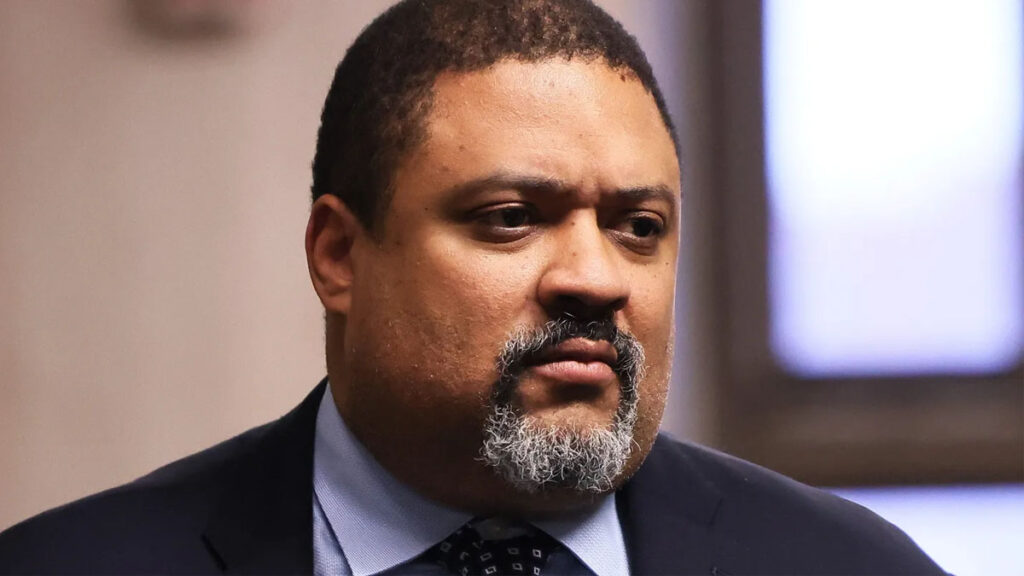There is a widely held belief that the campaign finance or “hush money” case brought against President Trump by Manhattan prosecutor Alvin Bragg was an exercise in political lawfare. That opinion does not just come from Team Trump. Pennsylvania Democrat Senator John Fetterman expressed that opinion to the ladies on ABC’s “The View.” Legal experts, such as CNN’s Elie Honig, have seen Bragg’s methods as unprecedented. Others have called it “prosecutorial abuse.” That is also the opinion of most Americans, according to polls.
Perhaps it would be useful to go over the reasons for those assessments. The charge against Trump is seen by many as the most politically motivated of the court cases he has faced in recent years.
Normally, these types of cases are usually settled by the Federal Election Commission (FEC) – resulting in exoneration or a relatively small fine. The agency chose not to pursue the case. Nor did prosecutors prior to Bragg. In fact, the statute of limitations had run out. End of case. Right? Au contraire.
Bragg engaged in prosecutorial contortionism to bring the case back from the dead. To slip passed the statute of limitations, he used an obscure procedure. He connected the initial charge to an unspecified felony – which he did not reveal until the case was turned over to the jury.
Bragg further sensationalized the case by taking essentially one charge and breaking it into 34 felony counts – using each check as a separate count. And Bragg understood that getting an indictment is a no-brainer. The system is mocked by the common belief that a prosecutor can get an indictment of a ham sandwich. Bragg also knew that the New York City jury pool would be composed of people adverse to Trump politically. As it turned out, there were only 2 Republican voters on the panel – and even that does not mean they were Trump voters.
Bragg has never been considered to have had a good case. The fact that he jumped the line ahead of other cases proceeding against Trump turned out to be a possible benefit to the former President. Considered the weakest and most political of the cases, it gave credibility to Trump’s claim of being subjected to political prosecution. It may explain why each time Trump got bad news from Democrat prosecutors, his polling numbers improved.
So … why write about this case up now? Because Bragg is again using unusual methods to make his controversial conviction against Trump stick – at least to some degree.
Bragg is asking Judge Juan Merchan not to dismiss the case but to just end the case. What? Bragg is suggesting that Merchan end the case without sentencing Trump – avoiding punishment of any kind – but retaining the conviction for the record as a means of avoiding a prolonged legal fight. It would put the case in some form of permanent state of legal suspended animation. It would suspend all further actions, including any appeal by the Trump team. The latter is significant since many legal experts believe the appeal would be successful – which would end the case in Trump’s favor by wiping out those 34 felony convictions.
In Bragg’s 82-page filing, he argued (emphasis added):
“As applied here, this Court could similarly terminate the criminal proceeding by placing a notation in the record that the jury verdict removed the presumption of innocence; that defendant was never sentenced; and that his conviction was neither affirmed nor reversed on appeal because of presidential immunity.”
In other words, Trump would have a felony conviction on the record even though it was neither affirmed nor reversed because he was never sentenced. As an alternative, Bragg was willing to allow the sentencing to be deferred until Trump leaves office in 2029. However, that would allow the appeal to move forward – and possibly result in a dismissal.
To get an idea of just how desperate Bragg is to make his controversial conviction stick, he is proposing a legal maneuver that is normally reserved for cases … (you ready for this?) … where the defendant has died. Read that again. Bragg wants to the judge to rule as if Trump were dead.
Is it any wonder why voters have either ignored these cases – or see them as politically motivated lawfare? If only Bragg showed the same zeal and creativity in prosecuting the dangerous criminals who are ravaging the streets of Manhattan.
So, there ‘tis.
